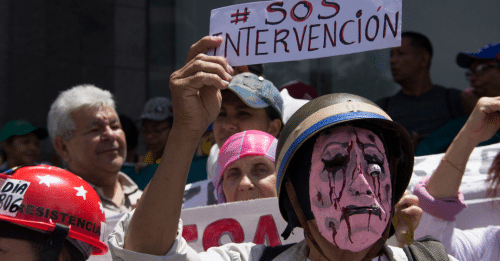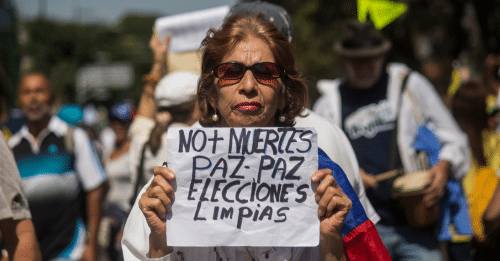Unmasking Toxic Love: Novelas and Distorted Romance
It’s well known that what we see and hear in mass media shapes our thoughts, ideas, and beliefs about ourselves and the world around us. When it came to our expectations of love, what we grew up watching often distorted what we thought love should be, and what love should feel like.

One day, after being relentlessly bullied by some kid in elementary school, I went to my mom to complain about the situation, only to be met with an excuse I will probably hear for the next 10 years of my life, “Te molesta porque le gustas…” Excuse me, WHAT?
Now, at the time, it made perfect sense. Of course, he’s bullying me because he likes me! Because “del odio al amor solo hay un paso,” everyone would say. And when I was younger, I would believe it. After all, every depiction of a romantic relationship I saw at the time seemed to confirm that a little bit of violence here and there was peak romanticism.
I remember watching the telenovela “Rebelde” and idolizing Mia Colucci and Miguel Arango’s relationship. It made me feel all fuzzy inside seeing them together. Since I’m a huge nostalgia junkie, I decided to go back and rewatch the entire thing again now that I’m 27. Needless to say, I was utterly impactada as I watched. What the heck, sis?! That dude literally tried to KILL YOU!

Miguel violently shakes and threatens to throw Mia off a cliff. Then, this doesn’t get addressed again for the entirety of the telenovela. Ok, cool.
Intrigued by the shocking revelations I was having by rewatching “Rebelde” and realizing Miguel is likely an undiagnosed sociopath or, at the very least, has some sort of psychological pathology going on, I began taking a closer look at all my teenage crushes, and it all started to make sense.
Ranging from possessive, manipulative douchebags that hide under the mask of being a “good guy” (I’m looking at you, Noah Calhoun from “The Notebook”) to gaslighting psychos that control your entire life and sneak into your room to watch you sleep without your consent (Edward Cullen from “Twilight” was in its own league, really), I realized I was doomed from the start if mainstream media for tweens like me at the time was my main source of information about the real world, which it totally was.
Conventionally attractive male characters who are controlling, jealous, or possessive are often depicted as “romantic” or “passionate” rather than abusive. At the same time, the women who are being mistreated may be shown as “putting up with it” for the sake of love. Add a bit of misinterpreted Catholicism into the mix with the idea that true love forgives and withstands everything and that, for some reason, it has to hurt, and we get a very distorted perception of what a healthy relationship looks like, which unknowingly led me to accept or excuse unhealthy behavior in my own relationships. It was all I ever saw.
Unequal power dynamics, where the man has control over a woman’s life in one way or another, like being their boss, teacher, a much older man, or someone with more money or influence than them, were painted as the ultimate love story. Take, for instance, Don Armando humiliating, abusing, and manipulating Beatriz Pinzón in “Yo Soy Betty, La Fea” only to end up with her, an outcome even the actor himself has said was absolutely wrong.
In reality, when one partner has more power than the other, they may use that power to control, manipulate, or dominate the other person. This inequality can quickly become physical, emotional, sexual, or financial abuse. Heck, the most blatant forms of abuse are even shown onscreen and STILL romanticized! In “Amor Real,” Manuel beats Matilde on more than one occasion, and they’re somehow still given a happy ever after. Are we going to address that or…?
Trauma bonding is what happens when an individual becomes obsessed with their abuser, although it is never called that way or addressed at all in most depictions of abusive relationships. It’s thought that being in a state of constant fear can result in an excessive release of opiates—a natural painkiller—in the brain. In turn, this state can cause feelings of euphoria or elation while also increasing endorphin production and decreasing adrenaline levels. As a result, victims may become so accustomed to their abuser’s mistreatment that they develop a dependence on their continued presence in order to feel normal again. This is often confused with that wild, intense, passionate love we see onscreen. It’s not love, it’s trauma.
Considerable and often concerning age gaps were also heavily romanticized and supported by the fallacy that “women mature faster than men” to make it seem less creepy. I mean, no one batted an eye when Vivian Ward ended up with Edward Lewis, who is 18 years her senior, in “Pretty Woman.” And I could go on endlessly about the Hollywood age gap. These depictions can create a societal expectation that such relationships are normal and acceptable. They make it difficult for women in these types of relationships to recognize that there may be power imbalances at play. As Demi Lovato said in her song “29”:
“Thought it was a teenage dream, a fantasy.
But it was yours, it wasn’t mine.
Seventeen, twenty-nine.”
Unfortunately, after years of being brainwashed into watering myself down to cater to a male fantasy of an “ideal woman,” I found out that abuse is not at all romantic the hard way; the way many women do, and some don’t even make it out alive. These skewed ideas of what love or passion looks like have taken years to unlearn, and despite making progress as a society toward identifying and calling out this toxic behavior, some of the most iconic onscreen couples still follow this harmful blueprint of abuse, Nate Jacobs and Maddy Pérez from “Euphoria” being the first that comes to mind.
It is essential to be critical of the media we consume and to remember that media portrayals of relationships are not always reflective of real-life relationships. Healthy relationships should be based on mutual respect, trust, and open communication. If you or someone you know is in a toxic relationship, it’s important to seek help and support. This can include talking to a therapist or counselor, reaching out to a domestic violence hotline (but let’s remember that not all abusive behavior is physically violent), or confiding in your closest friends or family members.
Just remember that you deserve to be in a healthy and happy relationship and that help is always available.




